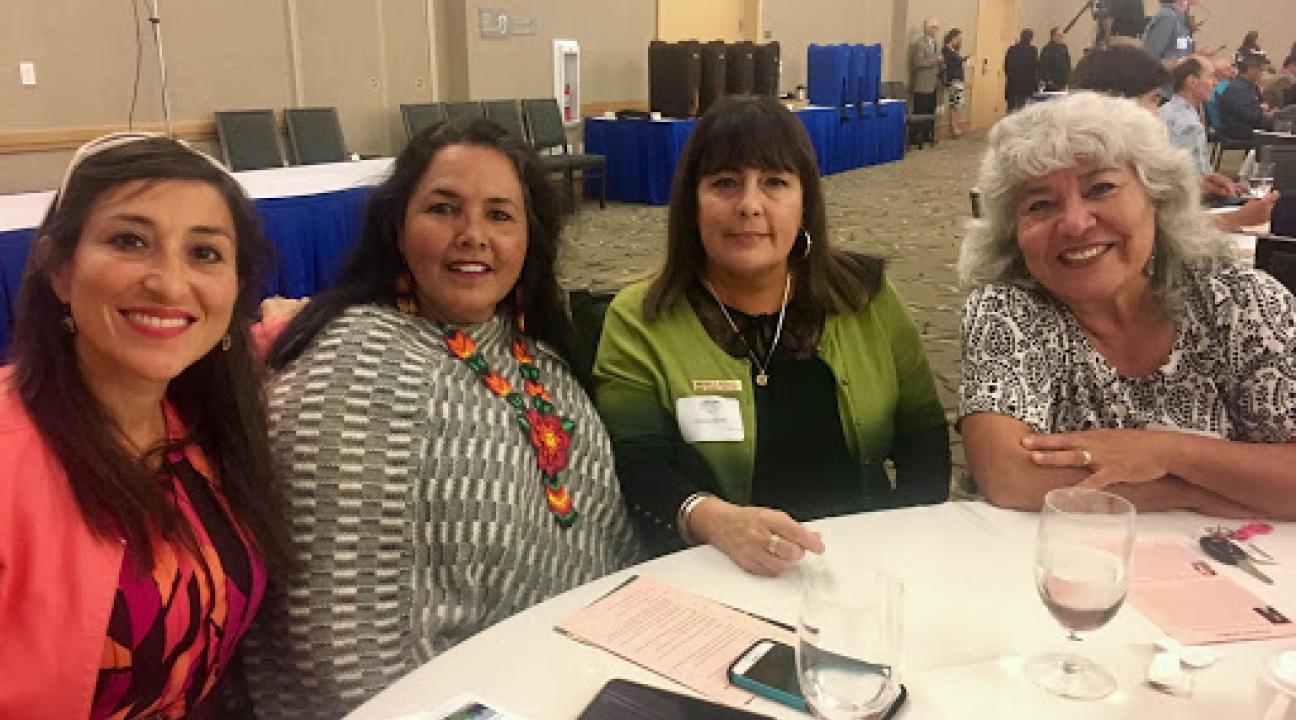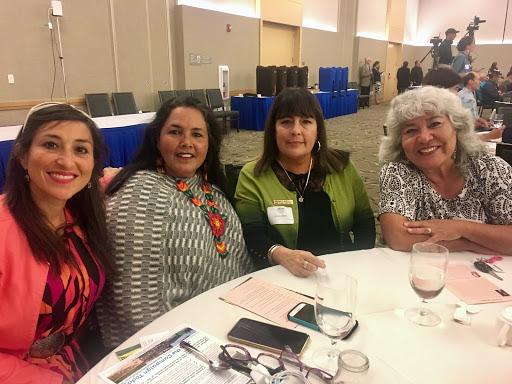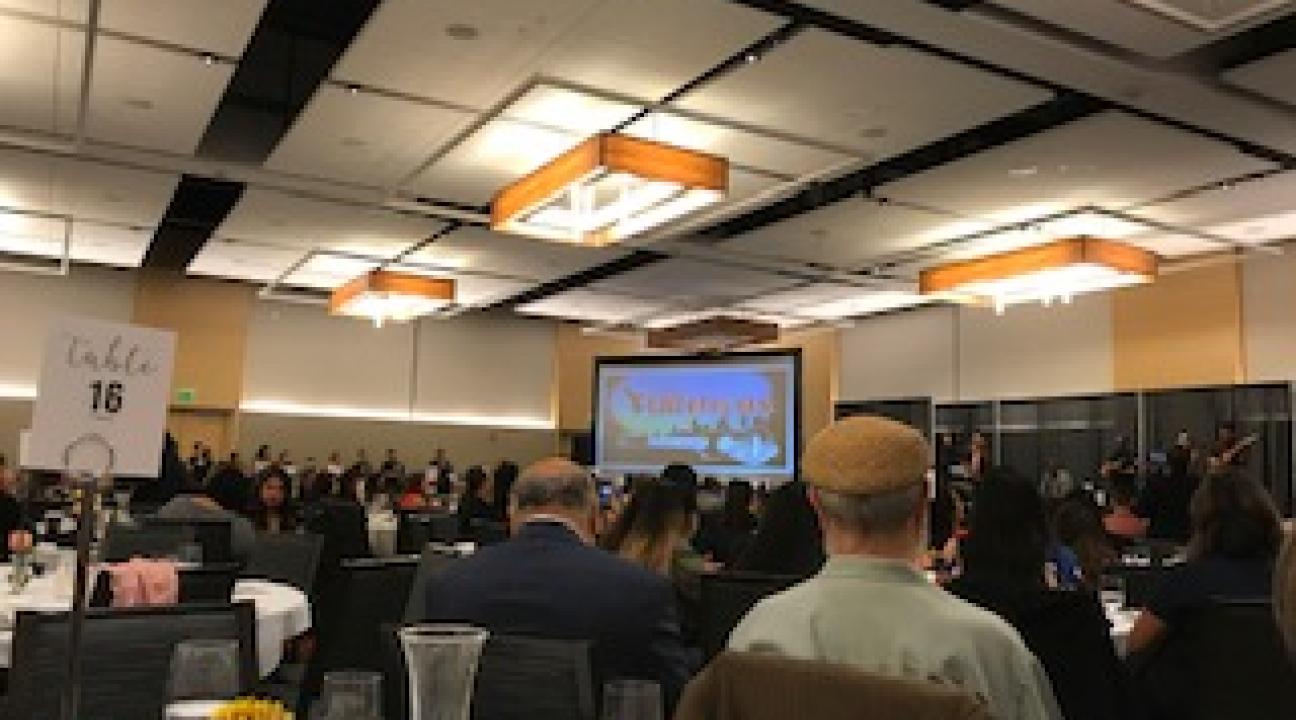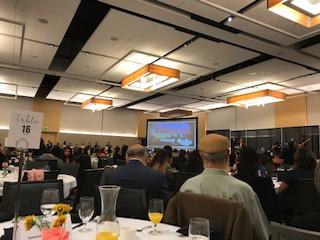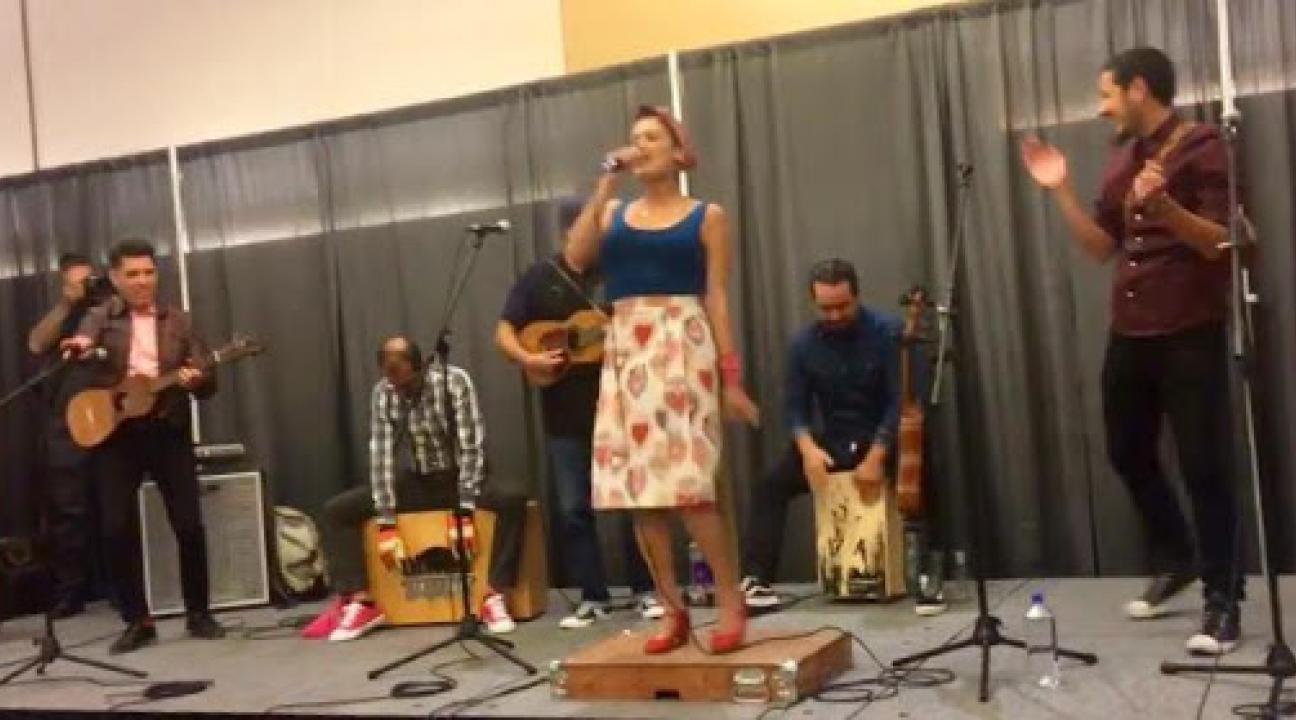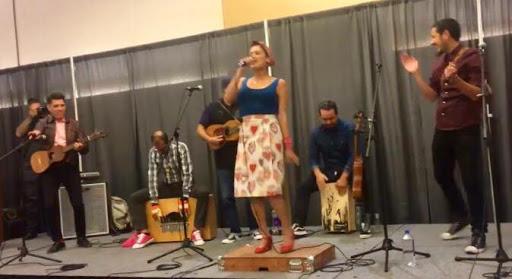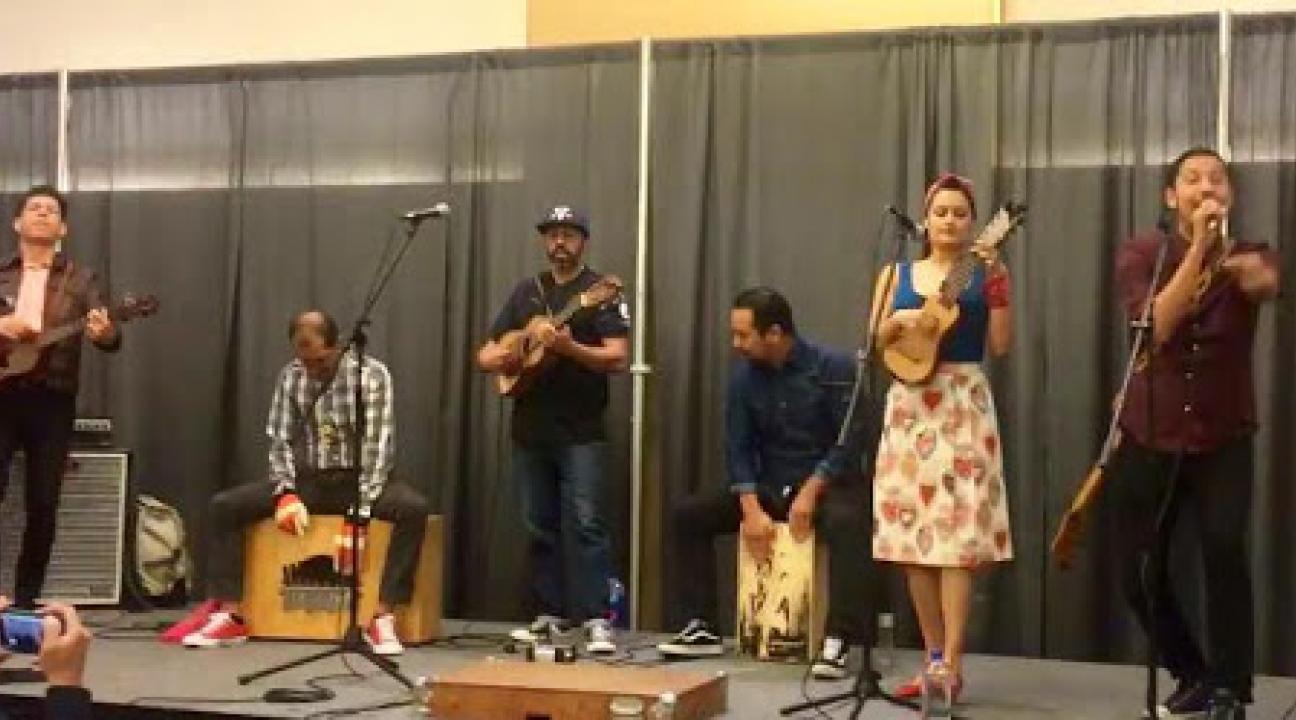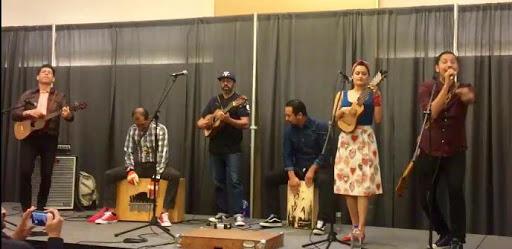5th Annual State of the Latino Community in Sonoma County
This year’s “State of the Latino Community in Sonoma County” focused on “Advancing Prosperity Unlocking Potential and Building Resilience in Sonoma County.” This was a rather long (5 hours) event with many speakers and included entertainment. The morning began (after breakfast and almost an hour of networking) with the usual welcome from Herman J. Hernandez, the President and founder of Los Cien. Next, there was a welcome to SSU from Provost, Lisa Vollendorf, where she talked about the 2025 Strategic Plan; that SSU is now an Hispanic Serving Institution; and that SSU is moving in the direction of becoming a regional, not just local institution. Vollendorf was followed by 4th District Supervisor James Gore. Gore gave a moving talk on the state of Sonoma County with respect to our continuing housing crisis, racism still existing here in our community, climate change becoming more and more evident, and he reminded us that many of these factors were a part of the Portrait of Sonoma County. He noted that homeowners make up 60% of Sonoma County and renters make up 40%; which happens to mirror the fires in terms of the percentage of people who lost their homes in the fires. Supervisor Gore than shared how he feels about privilege and the role it can play as we rebuild; stating, “...whoever you are; appreciate what you have and give back.”
Related: Los Cien: State of Latino Education Sonoma County
In between the many speakers that morning, President Hernandez made an announcement about a new program that Los Cien is launching with the help of State Senator Mike McGuire and Tony Crabb, co-owner of Puma Springs Vineyards. They announced a voter registration drive called Just Vote or Sola Vota; for first time Latinx voters who are between the ages of 18 and 35 in Sonoma and Marin counties. It was noted more than once that part of their targeting would be focused on “unmarried women.” It prompted the question: do single women vote less than single men? What constitutes “single” or unmarried women? After doing a bit of research, it does turn out that single women are considered an “untapped” demographic when it comes to voting. Whether or not these millennials and generation Zers vote also depends on socio-economic factors. Single young women, notwithstanding, voter registration and get out the vote programs in the Latinx community especially for first time voters, has the potential to impact the vote in 2018; thus this is a very worthwhile endeavor and commendable on the part of Los Cien.
Related: Los Cien: Equity in Sonoma County
The two main speakers were also thought-provoking. Dr. Micah Weinberg, President of Bay Area Council Economic Institute, spoke about the lack of workforce housing; which is having a major impact on whether or not people of all ages, but especially young people, can stay in Sonoma County. Dr. Weinberg spoke about California and Sonoma County interchangeably. He noted that California has the highest rate of poverty in the nation and that Latinos and African Americans were at the bottom economically. Although there are a “tremendous” number of jobs available (Dr. Weinberg did not discuss the type of jobs and whether or not they paid livable wages); there is no housing available. Dr. Weinberg also mentioned that the problem did not start with the fires; we have not build much housing since the late 90s. Instead of longer commutes, Dr. Weinberg suggested we build housing and convince people that in order to provide for everyone we must be YIMBY (Yes, in my backyard).
Next we were treated to a performance of Las Cafeteras, a Los Angeles based group that was also going to be performing at the Green Music Center the next evening. With their “unique East L.A. sound and positive message;” they were the highlight of the morning. The audience was encouraged to get out of their chairs and dance. The energy and enthusiasm that illuminates from Las Cafeteras is infectious.
The final speaker was David B. Grusky, PhD, professor of Sociology, and Director of the Center on Poverty and Inequality at Stanford University. Dr. Grusky expounded on the fact that California has the highest rate of poverty in the U.S. . He stated that there is an overall decline in Prime Age Employment (workers age 25 to 54). He pointed to low pay as being one of the major reasons for poverty. Lack of access to training and higher education were also reasons for high rates of poverty and barriers to entering the middle class, according to Dr. Grusky. He also pointed to segregation as a major factor. So given all these factors how do we address income inequality? Dr. Grusky talked about the concept of “predistribution.” This is the idea that the state should try to prevent inequalities before they happen rather than after. He listed some examples of ways of doing this by: strengthening unions, increasing the minimum wage, and addressing segregation. He stated that we need to face the problem. Some of the solutions involve spending money; some do not, but our country, Dr. Grusky feels, does not seem interested even though we’re supposed to have a commitment to equality.
Another highlight of the event was an award given by the Consul General of Mexico, Dr. Gemi Jose Lopez Gonzalez to George Ortiz; former Executive Director of California Human Development Corporation and President of Latino Unidos. Ortiz was given an award for all the work he has done especially for the farm worker community over the years. He ended his acceptance speech with one message: “resist, organize and vote.” The audience loved it.
Overall, the message of a “good” economy coupled with problems of housing, employment and labor shortages as well as poverty and income inequality made for a mixed picture of the current state of not just the Latino community but the community in general. While it wasn’t all bad news; we clearly have some work to do; such as building more affordable housing, improving our transportation systems, greater access to higher education and quality child care to name a few. Community engagement, which was also mentioned by Dr. Weinberg, and becoming more politically engaged are also part of the solutions to building Sonoma County into a more equitable place to live, work and play.
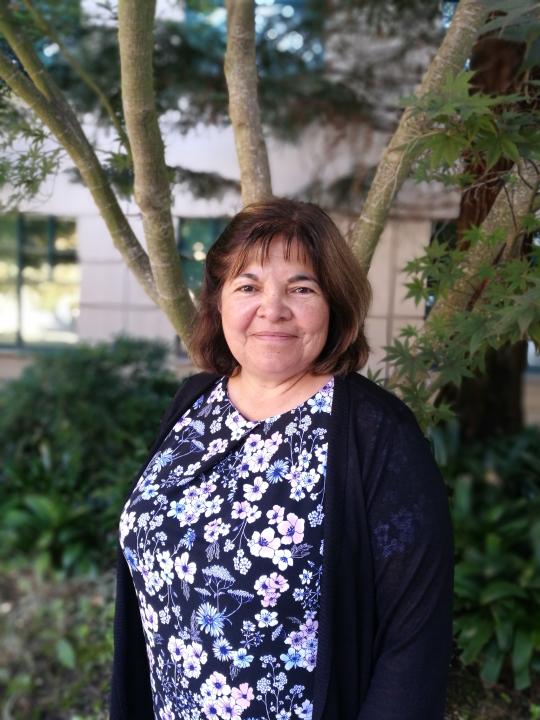
Author: Caroline Bañuelos


